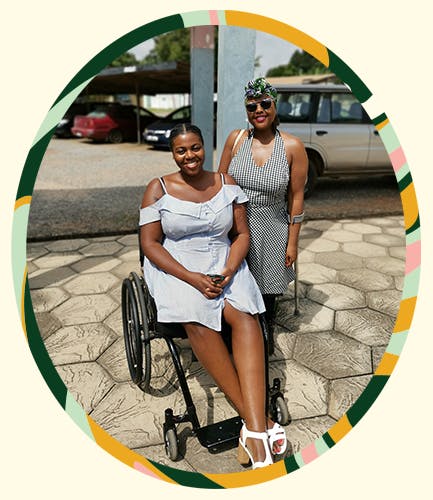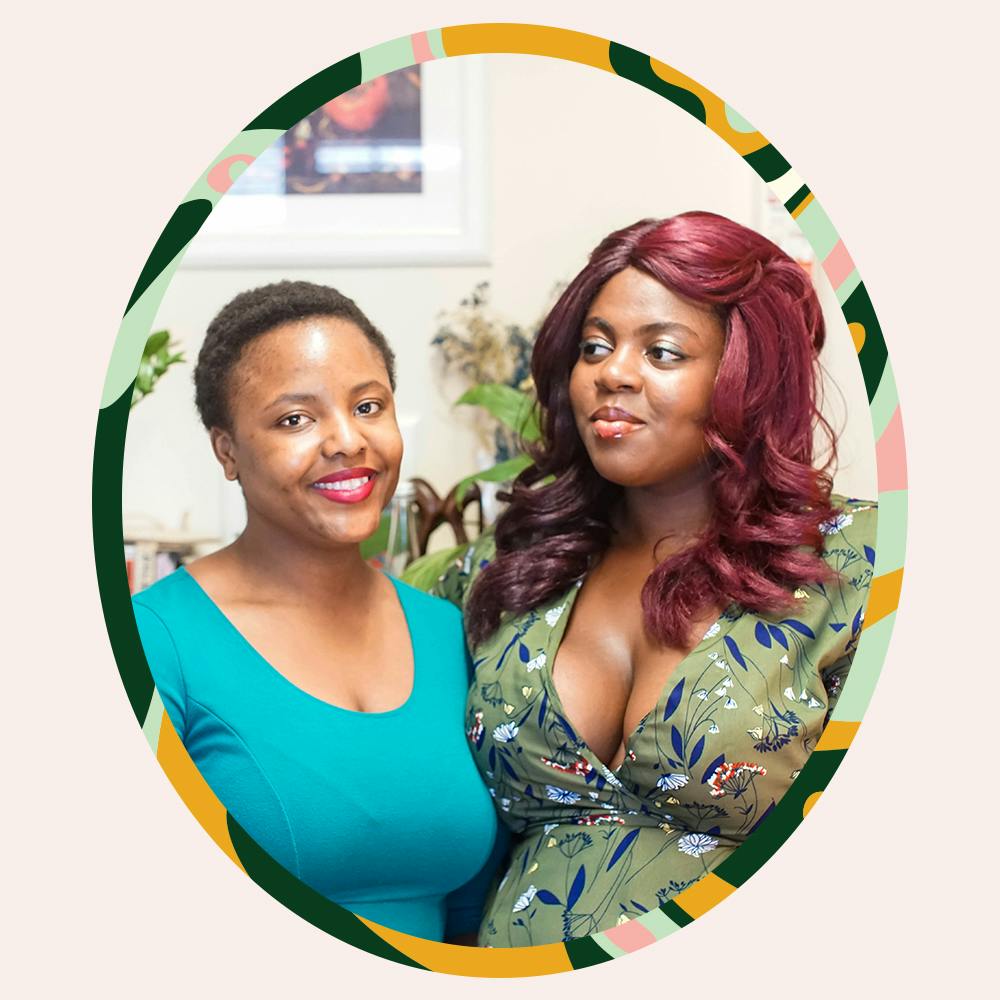Photography by Ekow Oliver
Mainstream reproductive health conversations centre white, non-disabled, cishet women.
With "pussy power" politics that revolve around pink vulvas and include the linking of uteruses and ovaries to womanhood, many are left out of sexual health discussions including Black and brown people, trans and non-binary folk and disabled people.
Despite being omitted from these conversations, Black women are 5 times more likely to die in childbirth than white women, while a 2016 report carried about by Public Health England highlighted that Black African women make up 80% of the women utilising HIV services in the UK.
When it comes to sexual health and Black women and non-binary folk, dangerous misconceptions and bias permeate the treatment they can receive by medical practitioners.
For example, Heart of the Race: Black Women’s Lives in Britain by Beverley Bryan, Stella Dadzie and Suzanne Scafe outlines the way Black women have historically had their sexuality and fertility policed by doctors due to being seen as a "high promiscuity risk", often to their utter detriment.
“Black women’s ability to reproduce has come to be viewed as a moral flaw, to be frowned upon and controlled... the consequences of this are evident in the numerous cases of Black women who receive unwanted sterilisations or terminations, or the damaging long-term contraceptive DP (Depo Provera).”
“
Black women’s ability to reproduce has come to be viewed as a moral flaw
Conversely, many disabled people face a lack of support and barriers to accessing the necessary services due to stigma around sex and disability.
In 2017, feminist policy and advocacy organisation, Engender, carried out a report on disabled women’s reproductive rights in Scotland and they found that ingrained stereotyping and negative assumptions about disabled women play a huge part in the systematic overlooking of their reproductive rights.
“It is often assumed that disabled women and girls do not need to access information or services regarding their reproductive and sexual health. Misconceptions about their needs, intentions and capacities regarding sex, relationships and motherhood influence the actions of families, service providers and legal representatives, and perpetuate stereotypes that lead to a lack of autonomy and the breach of a wide range of human rights.”
Not only are there assumptions made about the lives and sexuality of disabled women and non-binary folk, but there are also a number of practical considerations that need to be taken into account when it comes to contraceptive care.
Dr. Jane Dickson highlights a number of issues, such as mobility and difficulty swallowing, which mean that some forms of contraception are far more amenable.
“For example, women who use wheelchairs are often at risk for blood clots—a risk that increases with [the] use of the pill, making that a potentially less advisable option.” However, we continue to shut out the experiences of disabled women and non-binary people, denying them essential education and access.
So what happens when you exist in the body of a Black disabled woman, a woman who is believed to have a sexual appetite that is both expansive and diminished all at once?
“There’s a presumption because of me being a Black woman, people think, she’s always ready to go all the time for anything and everything,” highlights Jumoke Abdullahi. “But then when coupled with a disability, it’s like okay, but will her body—her physicality —allow this presumption that I have in my head of her always being ready for anything?”
Jumoke, who has polio, and her friend Kym Oliver, who has multiple sclerosis and uses a wheelchair, form The Triple Cripples, a platform that seeks to utilise media to push conversations and raise awareness around the experiences of disabled people worldwide, particularly Black disabled women.

For Kym, the main thing that excludes her from accessing the resources and services she needs is the way she’s interacted within sexual health clinics.
“Some of the questions they ask you, like how many sexual partners you have, they even apologise for asking you, it’s almost like ‘I know they don’t apply to you but we just have to ask these questions.’” She adds that sometimes disabled people are not even offered contraceptives unless they report a traumatic sexual encounter or think that they might be pregnant.
“[Medical professionals] presume that there isn’t as much sexual activity compared to a non-disabled person so when you do say ‘yes I have a partner’, they’re like, ‘oh okay’ and then they’ll carry on as normal but they don’t presume that the reason you’re coming to a sexual health clinic is because of sex itself. After every sexual health session, I advocate for myself, including having to ask for condoms.”
When it comes to sexuality and desire, there’s a very specific tension that Kym finds herself navigating as a tall fat Black disabled woman using a wheelchair. “The size of me means that I have the type of body type that people want to manhandle and abuse sexually and they feel like I should be able to take that, but at the same time there’s this idea that I shouldn’t have standards because of my size.”
“
When you centre the most marginalised, you liberate everyone else
She finds herself being a site for intense fetishisation as a result of her various intersecting identities but at the same time, she also presents what feels like a juxtaposition to some. “The moment you sit down on something with wheels, it bugles the mind. It’s like ‘You’re a fetish to me but now you’re sitting on this thing which dehumanises you so you’re not really a person anymore but unfortunately my loins are reacting to my imagination.’ People don’t know what to do with this.”
Jumoke finds that, as a result, it leads to an interrogation around a disabled person’s sexuality and sexual limitations. “You just get the ‘Can you do XYZ?’ and that’ll be one of the first questions straight out of the gate. They’ve decided that they want to be with you in this way and want to know if your physicality can facilitate that.”
From seeking out sexual health services to encounters with non-disabled people, preserving the humanity of disabled people and their reproductive rights becomes merely a suggestion, making it all the more important to have individuals and organisations carrying out critical work for the advocation of Black disabled women and sexual health.
Kym cites Decolonising Contraception as an important project that seeks to raise awareness about how colonial influences have shaped sexual and reproductive health, especially as she believes that ableism is a part of colonisation. “I see it as an extension of white supremacy and the policing of how bodies should look and function,” she says.
Above all, the pair believe that is critical for ongoing conversations and services around sexual and productive health to always ensure that disability is included and considered at every point, from pads and tampons to treatment within the healthcare system.
Jumoke adds: “When you centre the most marginalised, you liberate everyone else.”






